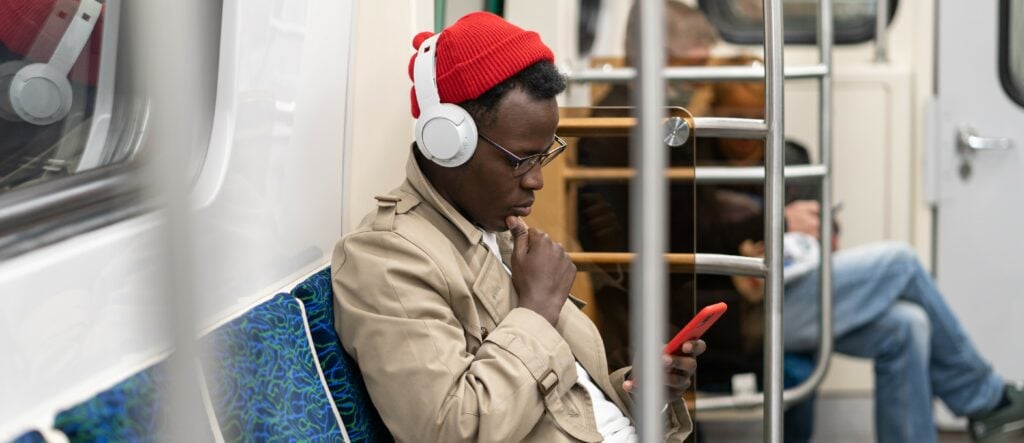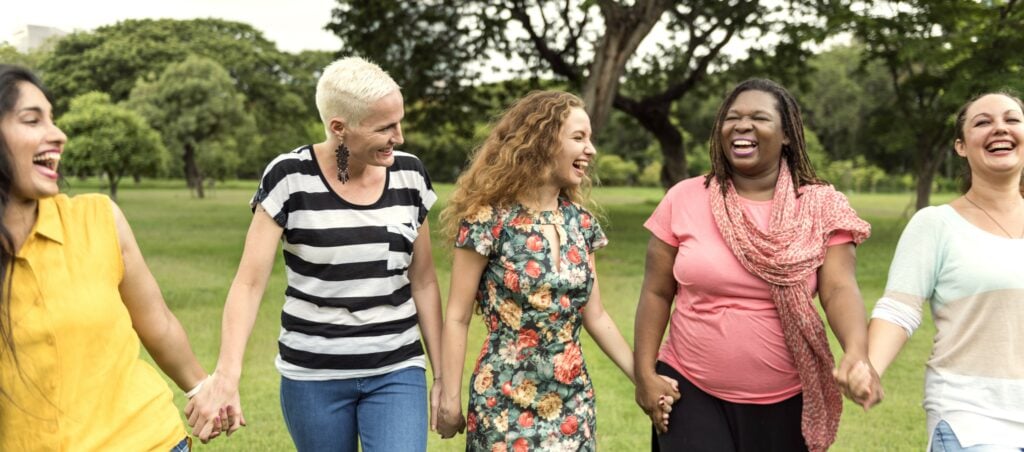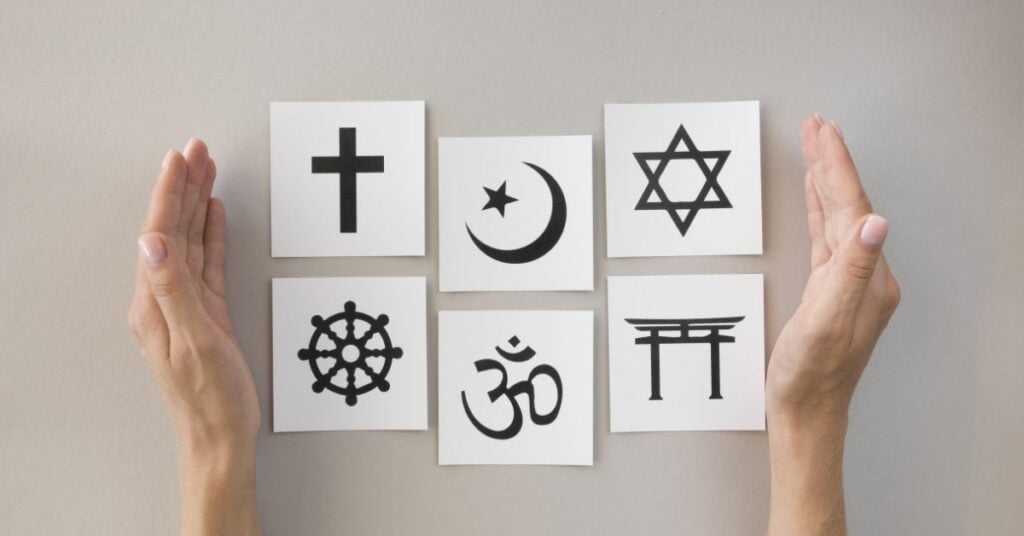What does it mean to decolonize therapy?
Reviewed by Monika Cope-Ward, LCSW


In the wake of the 2016 presidential election and the brutal public murder of George Floyd, many White Americans were startled into a new awareness of the systemic racism and trauma that have shaped the experiences of people of color for generations. This “racial reckoning,” as many media outlets named it, also led to deeper nationwide conversations about the ways colonization has shaped the world and undermined those who’ve been marginalized.1


From schools to workplaces to the justice system and beyond, colonialism has left indelible scars.2 In mental health care, the impact of this history on clients of color might look like never having worked with a therapist of color, facing ignorance or microaggressions from a care professional, or feeling like they can’t discuss race or identity and be truly heard by a White provider. Correcting these disparities is central to a movement that’s gaining momentum: an effort to change not only systems, but spaces and practices. Scholars and clinicians across the country are trying to undo centuries of harm and create a more equitable landscape.
Practitioner and scholar Shawna Murray-Browne, PhD, LCSW-C, is among those working to decolonize therapy and center what has long been excluded: voices, histories, and traditional ways of healing practiced by Black, Indigenous, and other communities of color.3
Decolonizing means giving back
To understand what decolonizing therapy means, says Murray-Browne, you have to separate the decolonization from the therapy. “Therapy is a practice and activity where we engage with a professional who supports us in regaining our mental wellness,” she explains. “Sometimes that involves medication, and sometimes that involves a lot of talking. Sometimes we do it one to one, and sometimes in a group setting.”
“To ‘decolonize’ means to ‘repatriate land and life,’ which means to return what was stolen to the rightful owners,” Murray-Browne says. “So when we talk about decolonizing therapy, we’re saying we—namely Indigenous folks and those who have been displaced—want our original ways of healing back.”
“It means we want to decenter European ideals of wellness, healing, and mental health,” she continues. “Decolonial conversations typically center on the Indigenous people of the land being occupied, which is so important. In my work, I make this conversation relevant to the descendants of people displaced and enslaved, indigenous to Africa.”
Traditional ways of healing
In talking about Africans who were enslaved in the United States, says Murray-Browne, it’s important to remember that they were trying to heal within a very violent structure. Churches often served as a refuge and a place to be in community away from their oppressors.
“One example of how African folks who were enslaved survived was through counterclockwise circle movement, singing, and dancing,” Murray-Browne says. Another traditional way of healing was to connect with a spirit. “When we talk in African American churches about ‘catching the Holy Ghost,’ that’s connecting to a spirit, maybe an ancestor, or listening to a higher power that speaks through the body.”
In many Indigenous communities, a crucial part of healing is a relationship with the land—one that has been disrupted by colonization, theft, confinement, and the suppression of Indigenous ceremonies, medicines, and land uses.4 In addition, Murray-Browne notes, the traditional European model of therapy focuses on the individual, neglecting the collaborative and inclusive nature of many Indigenous healing practices.
White supremacist structures
White supremacy is the idea that White or white-skinned people are more valuable and should hold more power than people with darker skin tones, and that their beliefs are superior. Societal institutions and systems founded on this notion, says Murray-Browne, are White supremacist structures. The American health care system and mental health care system fall into this category.
“Primarily European or Western ideas are being placed over and above other ways of knowing, being, and engaging,” Murray-Browne says. “It is difficult for Indigenous or people of color globally, or people of African descent, to gain access to systems of knowing and being when navigating institutions, theories, and practices designed by White European men.”
The risks of traditional therapy for BIPOC communities
Colonized therapy—meaning traditional therapy shaped by White supremacist ideologies—often fails Black, Indigenous, and people of color (BIPOC) communities. Its shortcomings include, but aren’t limited to:
Not supporting the whole person
One of the ways colonized therapy hurts BIPOC clients is by suppressing their ability to safely show up as their full selves in session.
“Society is anti-Black in the way we see beauty, who is deemed ‘educated,’ and assumptions we make when we first meet people,” Murray-Browne says. “This creates an environment where folks of color, and Black folks specifically, feel that to survive, they must alter themselves to the mainstream society—meaning what White folks need to be able to accept us, to feel more comfortable.” This is commonly referred to as code-switching.5 While changing identities to get through a given situation can be painful and lead to a sense of erasure, Murray-Browne notes that it can also be a way of feeling safe in the moment.
Surviving colonial violence has also affected the minds, bodies, and spirits of Indigenous people. According to scholars, dissociation is a common self-preservation response to the trauma of colonization.6 However, mainstream therapy tends not to acknowledge this response as rooted in oppression or to treat Indigenous clients in culturally perceptive, justice-focused ways.
Insufficiently recognizing generational trauma
Generational trauma refers to traumatic impact passed from one generation of a family to the next. This can manifest in various mental health concerns, including anxiety and depression. For members of BIPOC communities, America’s long history of medically maltreating people of color is another source of trauma that can erode trust in the health care system and act as a barrier to care.7
Many of the mental health concerns faced by people of color can be traced to violence and trauma suffered under colonization. “Indigenous Elders speak to this dynamic when they say that the social, relational, mental health, and health issues that we as Indigenous people live with today are not ‘our’ illnesses,” writes Riel Dupuis-Rossi, MA, MSW, RSW, a Two-Spirit therapist of Mohawk, Algonquin, and Italian descent.8 “They did not originate with us. … They ‘belong’ to settler society.”
The path forward for therapists
Therapists can take steps within a framework of decolonization to create a welcoming place for their BIPOC clients.
Recognize those who are doing the work
Murray-Browne has worked all over the country with schools, communities, and institutions who want to commit to antiracism and the decolonization of mental health. “Acknowledge and lift up the folks that have been doing the study, are connected to their lineage, and are responsive to their community,” she says. “They should be compensated and partnered with.”
Know your community
Murray-Browne says while you may not be of the same race or background as your client, you should familiarize yourself with organizations in your community that can meet the client’s needs. “I call it ‘decolonizing your referral list,’” she explains. “If you know your clients likely have experienced racial trauma, you should have a grassroots organization on your list to connect them with.” Likewise, Murray-Browne urges clinicians to spend time in their clients’ communities to better understand the people they’re serving.9
Consider raising your critical consciousness
As a therapist, you may prefer to avoid political topics in session, but that’s only one choice. It’s important to have some idea of the world around you and how those issues might impact different populations, says Murray-Browne: “I want a therapist who, if I am stressed out about what’s happening in Palestine or with my family in Israel, can have a nuanced conversation without a blank face.” This doesn’t mean you’re required to have an opinion about the topic at hand, but it does mean you can hold space for your client and their experience.
How to find a therapist with a decolonization mindset
If you’re looking for a mental health professional who’s engaged in the work of decolonization, says Murray-Browne, follow these tips.
Pay attention to the language on their website. Murray-Browne advises looking for a mention of social justice in the therapist’s work or trying to find out if they’re a member of a relevant organization. Are they listed in inclusive directories? Do they reference racial trauma?
Look at their social media. “The therapist may have a social media account or a podcast, or be featured in articles,” says Murray-Browne. “These are places where we can gather insight about the perspectives of the therapist and their therapeutic capacity and education.”
Interview the therapist. Most therapists provide a free intake session. In that conversation, feel free to ask about their stance on decolonization. Murray-Browne suggests questions like, “Can you tell me your thoughts on social justice and its relationship to therapy?” or “What trainings or certifications have you done to be able to hold space for someone who identifies as I do?”
Avoid red flags. Finding a therapist takes intuition. Sometimes you have a good feeling about someone or an instinct that they’re not the right fit. Murray-Browne cautions against working with a provider who says they don’t see color or believes that your racial or spiritual identity won’t have any bearing on what you talk about in session.
Decolonization runs deeper than therapy
Decolonizing mental health is essential to the healing of millions of people around the world. For professionals like Murray-Browne who are actively engaged in this practice, it goes far beyond reclaiming the therapy space.
“When we talk about decolonizing, it’s not just this one thing,” she says. “We don’t only want our healing ways returned to us. We also want the ability to think for ourselves. We want land back for Indigenous peoples, and space for displaced African people to reconcile their global landlessness. We want our culture and histories back. So it’s one part of a larger effort of trying to support folks who have been oppressed.”

Sources
1 https://www.nbcnews.com/americas-racial-reckoning/
2 https://www.sciencedirect.com/topics/social-sciences/colonialism/
3 https://www.psychotherapynetworker.org/article/decolonizing-therapy/?utm_source=tcom&utm_medium=referral&utm_campaign=tcom_/decolonize-therapy/
4 https://link.springer.com/chapter/10.1007/978-3-030-79622-8_8/
5 https://www.pewresearch.org/short-reads/2019/09/24/younger-college-educated-black-americans-are-most-likely-to-feel-need-to-code-switch/
6 https://link.springer.com/chapter/10.1007/978-3-030-00090-5_13/
7 https://www.nejm.org/doi/full/10.1056/NEJMpv2035827/
8 https://jps.library.utoronto.ca/index.php/ijih/article/view/33223/27339/
9 https://www.psychotherapynetworker.org/article/decolonizing-mental-health/?utm_source=tcom&utm_medium=referral&utm_campaign=tcom_/decolonize-therapy/
About the author
Amye Archer, MFA, is the author of “Fat Girl, Skinny” and the coeditor of “If I Don’t Make It, I Love You: Survivors in the Aftermath of School Shootings,” and her work has appeared in Creative Nonfiction magazine, Longreads, Brevity, and more. Her podcast, “Gen X, This Is Why,” reexamines media from the ’70s and ’80s. She holds a Master of Fine Arts in creative nonfiction and lives with her husband, twin daughters, and various pets in Pennsylvania.
Related articles

Disabilities and mental health
Having a disability and struggling with your mental health are two separate...

Podcast roundup: Transformative moments in Black history
Racism still permeates our country, despite profound changes since June 19...

Powerful as a mother: The magic that happens when moms join forces
Moms are often nurturers and protectors. The urge to care for others comes from...

Religion, spirituality, and mental health
Learn the positive and negative mental health benefits of both religion and...
